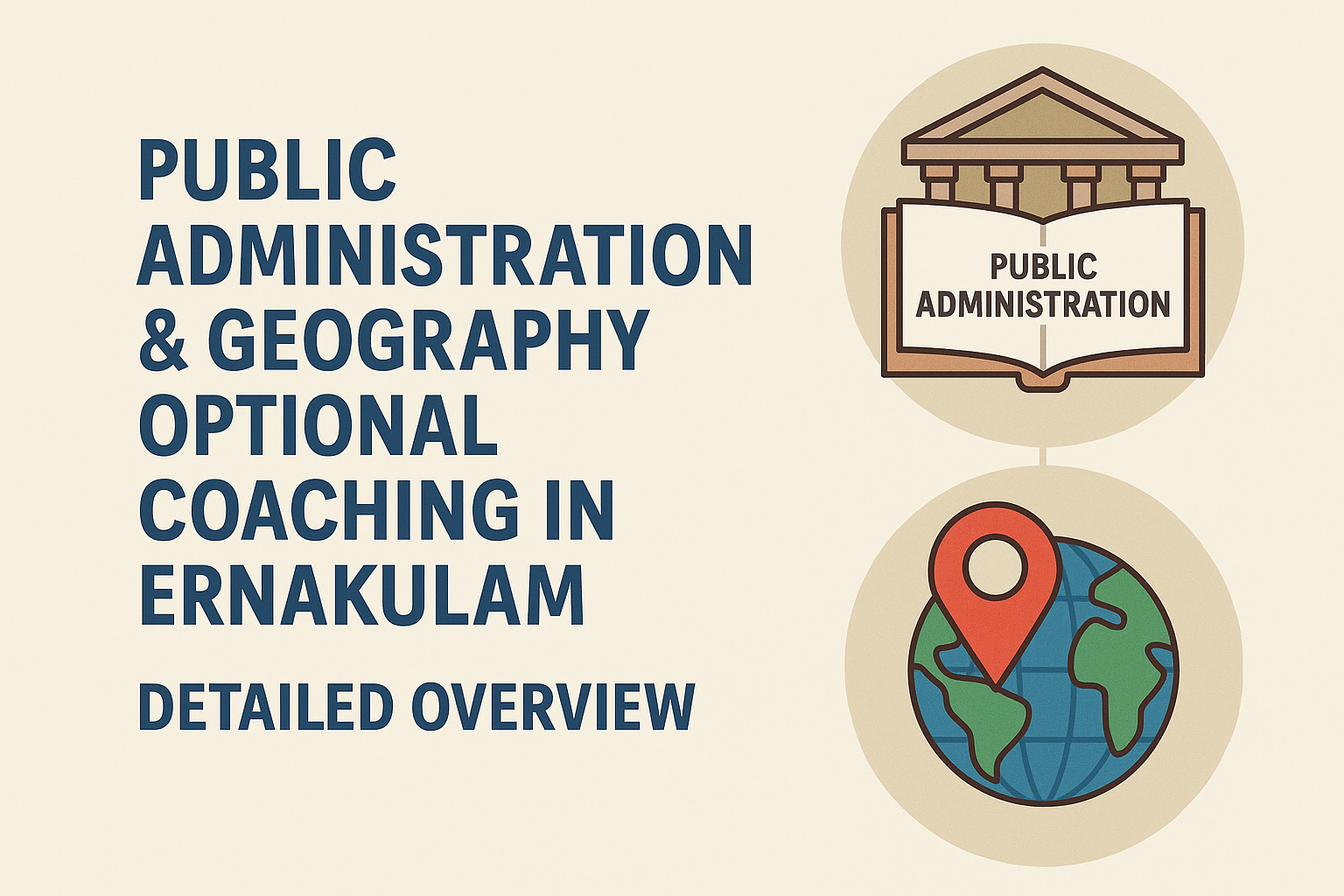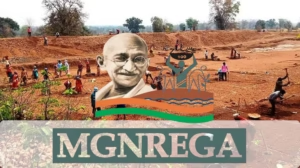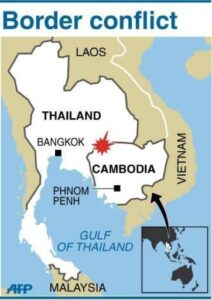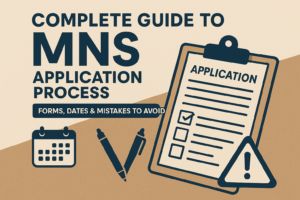Selecting the right optional subject for UPSC Mains is one of the most important decisions for every aspirant. Among the most popular and successful choices in Ernakulam are Public Administration and Geography, both known for their scoring potential, strong overlap with General Studies papers, and availability of expert coaching. With proper guidance, consistent practice, and Kerala-centric examples, these two subjects can significantly enhance your overall UPSC performance.
Why Choose Public Administration or Geography in Ernakulam
High GS and Essay Overlap:
Both subjects have direct connections with topics in General Studies Papers I, II, III, IV, and the Essay paper, reducing overall workload.Availability of Expert Guidance:
Ernakulam has reputed UPSC institutes offering specialized faculty, structured notes, and test series for these optionals.Kerala-Based Examples:
Aspirants can integrate local administrative reforms, disaster management, and environmental policies of Kerala to enrich answers.Strong Scoring Track Record:
Consistent toppers’ performance in both subjects shows their reliability as high-yield optionals.
Public Administration Optional – Comprehensive Overview
Why It’s a Smart Choice
Compact syllabus and strong conceptual clarity.
High overlap with Polity, Governance, Ethics, and Essay.
Useful in interview discussions related to administration and public policy.
Key Areas in the Syllabus
Paper I: Administrative Theory
Foundations of Public Administration – Evolution, Classical, and Modern theories.
Behavioural and Systems approaches.
Administrative Thinkers – Woodrow Wilson, Taylor, Fayol, Gulick, and others.
Accountability, Control, and Ethics in Administration.
Public Policy, Financial and Personnel Administration.
Paper II: Indian Administration
Evolution of Indian administration and constitutional framework.
Centre–State–Local relations.
District Administration and role of District Collector.
Public Sector and Regulatory bodies.
Social Welfare, e-Governance, and Civil Service Reforms.
Study Approach
Focus on concept clarity and real-life applications.
Integrate Kerala-specific examples such as Kudumbashree, People’s Plan Campaign, e-Governance, and Disaster Management Initiatives.
Revise administrative theories regularly and apply them in Indian context-based questions.
Key Resources
Mohit Bhattacharya – New Horizons of Public Administration.
Fadia & Fadia – Public Administration.
2nd ARC Reports and PRS India summaries.
Kerala Government annual reports and case studies.
Writing Strategy
Begin answers with a clear definition or concept.
Use flowcharts or bullet points for clarity.
Include relevant committee names, reports, and examples.
End with a solution or reform-oriented conclusion.
Geography Optional – Comprehensive Overview
Why It’s a Strong Optional
Highly scientific, logical, and data-friendly subject.
Useful for aspirants from science, engineering, or geography backgrounds.
Strong overlap with GS Paper I (Geography), GS Paper III (Environment and Disaster Management), and Essay.
Key Areas in the Syllabus
Paper I: Physical and Human Geography
Geomorphology, Climatology, Oceanography, and Biogeography.
Environmental Geography and Climate Change.
Human Geography – Population, Settlement, Economic, and Cultural Patterns.
Paper II: Geography of India
Physical Setting and Resources.
Agriculture, Industries, and Regional Planning.
Urbanisation, Migration, and Developmental Issues.
Environmental Conservation and Disaster Management.
Study Approach
Develop a strong command over maps and diagrams.
Relate physical geography concepts to Indian and Kerala contexts.
Keep updated with current issues such as coastal erosion, monsoon patterns, and biodiversity in Western Ghats.
Key Resources
Savindra Singh – Physical Geography and Climatology.
Majid Husain – Geography of India and Human Geography.
NCERTs (Class XI & XII) for conceptual clarity.
Atlas (Oxford/Orient BlackSwan).
Writing Strategy
Draw diagrams and maps wherever possible.
Use recent data, reports, and indices.
Include examples from Kerala such as landslides in Idukki, floods, and sustainable tourism models.
Maintain clear subheadings and structured arguments.
20-Week Integrated Study Plan
| Weeks | Public Administration Topics | Geography Topics | Weekly Goals |
|---|---|---|---|
| 1–2 | Administrative Theories | Geomorphology | Concept building |
| 3–4 | Behavioural & Systems Approach | Climatology | Diagram practice |
| 5–6 | Accountability & Policy | Oceanography | Sectional Test 1 |
| 7–8 | Financial & Personnel Admin | Human Geography | Model Answer writing |
| 9–10 | Evolution of Indian Admin | India Physical Features | Sectional Test 2 |
| 11–12 | Centre–State Relations | Resources & Industries | Case study addition |
| 13–14 | Social Welfare | Urbanisation | Sectional Test 3 |
| 15–16 | Ethics & Reforms | Environment & Planning | Full-length Test 1 |
| 17–18 | Revision Cycle 1 | Revision Cycle 1 | Mock Practice |
| 19–20 | Paper I & II Integration | Paper I & II Integration | Final Mains Simulation |
Answer Writing Essentials
Structure every answer as Introduction → Core Content → Examples → Conclusion.
Use at least one diagram or flowchart per answer in both subjects.
Link with current affairs and Kerala-based examples.
Follow time discipline – 7 minutes per 10-mark question, 11–12 minutes per 15-mark question.
Common Mistakes to Avoid
Choosing an optional based on popularity instead of interest.
Ignoring PYQs and focusing only on new materials.
Weak presentation without subheadings or diagrams.
Overdependence on notes without conceptual understanding.
Lack of test series participation and feedback review.
Key Advantages of Ernakulam for UPSC Optional Preparation
Availability of specialized faculty for both Public Administration and Geography.
Affordable classroom and test series programs with individual feedback.
Kerala-based case studies and regional examples easily accessible.
Collaborative study culture with motivated aspirants and mentors.
Daily Routine for Optional Preparation
Morning (2 hours): Concept Reading & Note Making
Afternoon (1 hour): PYQ Practice & Diagram Revision
Evening (1–2 hours): Answer Writing and Test Review
Weekly: One sectional test + one Kerala-specific case update
Ideal Candidate Profile
Public Administration: Suitable for aspirants interested in governance, public policy, ethics, and administration.
Geography: Ideal for aspirants who are analytical, data-driven, and interested in environmental studies or spatial analysis.
Final Tips for Success
Focus on conceptual clarity and consistent revision rather than covering too many sources.
Prepare micro-notes for every topic for quick revision before Mains.
Attend weekly tests and improve based on feedback.
Integrate Kerala examples in both papers to stand out.
Maintain 90% syllabus coverage and 3–4 revisions before Mains.
Conclusion:
Public Administration and Geography remain the two most rewarding UPSC optionals for aspirants in Ernakulam. With the right mentorship, structured notes, test series, and Kerala-specific examples, aspirants can comfortably score above 280 marks in Mains. Choosing the right optional is not just about trends—it’s about your ability to understand, revise, and write effectively. In Ernakulam, the availability of expert faculty and comprehensive programs makes it the ideal location to master either of these two powerful optionals.






